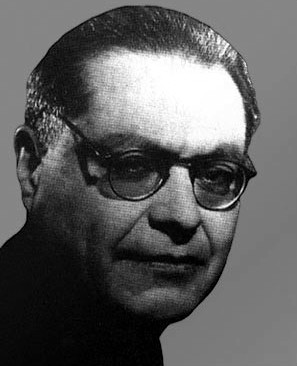Fernando Chaves Reyes (Otavalo, February 13, 1902 – Quito, 1999) was an Ecuadorian novelist, essayist, journalist, diplomat, and politician. He is best known for his novel Plata y bronce (1927), which pioneered the indigenist movement in Ecuadorian literature, depicting the social struggles of indigenous communities. His literary work influenced future generations, including Jorge Icaza, author of Huasipungo. In addition to his literary career, Chaves served as Ecuador’s ambassador to several countries and held the position of Minister of Education. In 1991, he was awarded the National Grand Cross of the Order of Merit.
Early Life and Education
Born in Otavalo, Ecuador, Chaves was the second of seven children and the eldest son in a family led by his father, Alejandro Chávez Guerra, a prominent educator, and his mother, Josefa Reyes Bilbao. His father instilled in him a love for literature and education, teaching him to read and write at home. Following his father’s death in 1913, Chaves was sent to live with his aunt and uncle in Quito, where he continued his education.
He attended the Instituto Nacional Mejía and later received a scholarship to study at the Instituto Normal Juan Montalvo. He graduated as a school teacher in 1920 and soon after began his career in education.
Besides his native Spanish, Chaves spoke Portuguese, French, German, and English.
Literary Career
Chaves’ literary debut came in 1923 with the novella “La Embrujada”, published in the Revista de la Sociedad Jurídico-Literaria. The story, set in his native Otavalo, was praised for its vivid portrayal of indigenous life and culture, marking the beginning of the indigenist literary movement in Ecuador.
His second novel, “Plata y bronce” (1927), is considered his most significant work, as it laid the foundation for the Ecuadorian indigenist novel. The novel explores the dynamics between the indigenous population and the ruling classes, blending social critique with compelling narrative techniques. This work won a literary contest held by the group América to commemorate the birthday of Juan Montalvo.
In 1958, Chaves published his third novel, “Escombros”, a departure from his earlier themes, focusing instead on existential loneliness and disenchantment. Despite his efforts and personal attachment to this work, it received little critical attention at the time of its publication.
Diplomatic and Political Career
Chaves’ diplomatic career began in 1938 when he was appointed Ecuador’s consul in Le Havre, France, where he witnessed the early stages of World War II. After the German bombings of Le Havre in 1940, he relocated the consulate to Bordeaux and later to Marseilles. His ethical stance during this time—refusing to engage in the sale of visas—resulted in his unjust dismissal from the consulate. However, the Foreign Minister, Tobar Donoso, later reinstated him, recognizing the injustice.
Chaves continued his diplomatic service, holding positions as Consul General in Lisbon, Charge d’Affaires in Bremen, and later serving as Ecuador’s ambassador to El Salvador, Mexico, and Nicaragua. He played a key role in shaping Ecuador’s foreign relations throughout the mid-20th century.
In addition to his diplomatic work, Chaves was appointed Minister of Education during the presidency of Galo Plaza Lasso (1948-1952), a role in which he promoted educational reforms.
Personal Life
Fernando Chaves married Magdalena Marie Ribreau, a French widow with a small daughter, during his tenure in France. The couple had no children. After a happy marriage, Magdalena passed away in 1982 following a stroke. Chaves lived out his later years in Quito, where he continued writing and engaging in intellectual pursuits until his death in 1999.
Legacy and Influence
Fernando Chaves is celebrated for his foundational role in Ecuadorian indigenist literature. His novel Plata y bronce set the stage for other iconic works in the genre, particularly influencing writers like Jorge Icaza, whose novel Huasipungo (1934) is often considered Ecuador’s most important indigenist work.
Chaves also made significant contributions to education and diplomacy in Ecuador, earning him the National Grand Cross of the Order of Merit in 1991.
Influences
Chaves was influenced by the Bolivian novelist Alcides Arguedas, who in 1919 wrote the indigenist novel Raza de bronce (Race of Bronze).
Works
Novels
- La embrujada (1923)
- Plata y bronce (1927)
- Escombros (Quito, 1958)
Non fiction
- Ideas sobre la posición actual de la pedagogía (1933)
- Crónicas de mi viaje a México: 1934-1935 (1935)
- El hombre ecuatoriano y su cultura (1990)
- Diario sin fechas (1994)
References
- Otavalo.org, “Fernando Chaves Reyes.” Retrieved on October 19, 2024. Click to view.
- Wikipedia, “Fernando Chaves Reyes.” Retrieved on October 19, 2024. Click to view.
- Biblioteca Casa de la Cultura Ecuatoriana, “Chaves, Fernando, 1902-1999.” Retrieved on October 19, 2024. Click to view.
- Aequatoria.com (archived), “Chavez Reyes Fernando.” Retrieved on October 19, 2024. Click to view.
- Diccionario Biográfico Ecuador, “Chaves Reyes Fernando.” Retrieved on October 19, 2024. Click to view.
- Google Books, “Crónicas de mi viaje a México.” Retrieved on October 19, 2024. Click to view.
- Google Books, “El hombre ecuatoriano y su cultura.” Retrieved on October 19, 2024. Click to view.
- Lifeder, “Fernando Chaves.” Retrieved on October 19, 2024. Click to view.
- Rodolfo Pérez Pimentel, “Chaves Reyes, Fernando.” Retrieved on October 19, 2024. Click to view.
- Literatura Ecuatoriana, “Fernando Chaves.” Retrieved on October 19, 2024. Click to view.
This post was updated on October 19, 2024.

